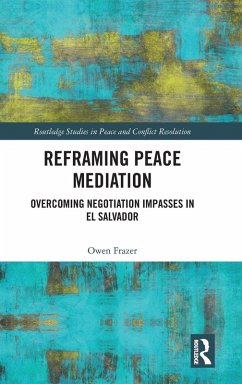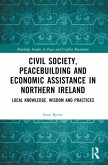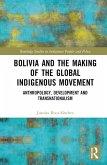This book explains how facilitative mediators, those without material leverage, contribute to progress in peace negotiations.
While existing theories of mediation have offered suggestions about what a mediator should get parties to do to reach an agreement, the puzzle that has remained is: how does a mediator get parties to do what is prescribed? The book argues that a communication perspective is key to understanding facilitative mediation and that framing is the main mechanism by which facilitative mediation functions. Based on an empirical analysis of the United Nations mediation in El Salvador between 1990 and 1992, the work breaks new ground by uncovering three underlying mechanisms that explain how a mediator can get their framing adopted by the negotiating parties, thereby advancing the negotiations. The book offers a novel theory of facilitative mediation as framing and an innovative methodological approach that focuses on negotiation impasses to study the process of how negotiations progress. Practitioners will also appreciate the framework for thinking about when and how framing and reframing can be used to increase mediation's effectiveness as a tool for ending armed conflict.
This book will be of much interest to students of peace and conflict studies, negotiation, Latin American politics, and International Relations, as well as practitioners.
While existing theories of mediation have offered suggestions about what a mediator should get parties to do to reach an agreement, the puzzle that has remained is: how does a mediator get parties to do what is prescribed? The book argues that a communication perspective is key to understanding facilitative mediation and that framing is the main mechanism by which facilitative mediation functions. Based on an empirical analysis of the United Nations mediation in El Salvador between 1990 and 1992, the work breaks new ground by uncovering three underlying mechanisms that explain how a mediator can get their framing adopted by the negotiating parties, thereby advancing the negotiations. The book offers a novel theory of facilitative mediation as framing and an innovative methodological approach that focuses on negotiation impasses to study the process of how negotiations progress. Practitioners will also appreciate the framework for thinking about when and how framing and reframing can be used to increase mediation's effectiveness as a tool for ending armed conflict.
This book will be of much interest to students of peace and conflict studies, negotiation, Latin American politics, and International Relations, as well as practitioners.
'This book breaks new ground by adding depth and humanity to a notoriously dry field of study and by shining a light on what practitioners of the arcane craft of mediation can bring to the search for peace.'
Alvaro de Soto, chief UN mediator, El Salvador Peace Accord, 1990-1992
'This is an essential book for anyone interested in how peace mediation actually works. Frazer shows how facilitative mediators can help bring parties toward the resolution of armed conflicts using the practice of framing. Is the art and science of peace mediation beginning to meet?'
Isak Svensson, Dag Hammarskjöld Professor in Peace and Conflict Research, Uppsala University
'Owen Frazer's meticulous analysis of the negotiation of the end of El Salvador's civil war throws new light on the practice of facilitative mediation. His nuanced interrogation of the mediator's role in helping the conflict parties overcome impasses is a significant contribution to our understanding of the importance of "framing" in mediation.'
Teresa Whitfield, former Director, Policy and Mediation Division, UN Department of Political and Peacebuilding Affairs
Alvaro de Soto, chief UN mediator, El Salvador Peace Accord, 1990-1992
'This is an essential book for anyone interested in how peace mediation actually works. Frazer shows how facilitative mediators can help bring parties toward the resolution of armed conflicts using the practice of framing. Is the art and science of peace mediation beginning to meet?'
Isak Svensson, Dag Hammarskjöld Professor in Peace and Conflict Research, Uppsala University
'Owen Frazer's meticulous analysis of the negotiation of the end of El Salvador's civil war throws new light on the practice of facilitative mediation. His nuanced interrogation of the mediator's role in helping the conflict parties overcome impasses is a significant contribution to our understanding of the importance of "framing" in mediation.'
Teresa Whitfield, former Director, Policy and Mediation Division, UN Department of Political and Peacebuilding Affairs









